A team of four firms—civiliti, LAND Italia, Table Architecture, and Biodiversité Conseil—won the national, multidisciplinary landscape architecture competition for the regeneration of the City of Montreal in Canada proposing Biodiversity Corridor Master Plan, a visionary plan for the reinstatement of natural habitats in the bustling urban environment thus reconciling the logic of the city and the logic of life.
-text by the authors
Last November, as Wuhan, China was hosting its 5th Design Biennale, no one could have suspected how appropriate the timing would be for the City of Montreal to unveil its ambitious new Biodiversity Corridor project. Wuhan would soon become known worldwide for its role in the current coronavirus pandemic – a symbol of the high price to be paid by cities everywhere for the elimination of wildlife and natural habitats from their territories.
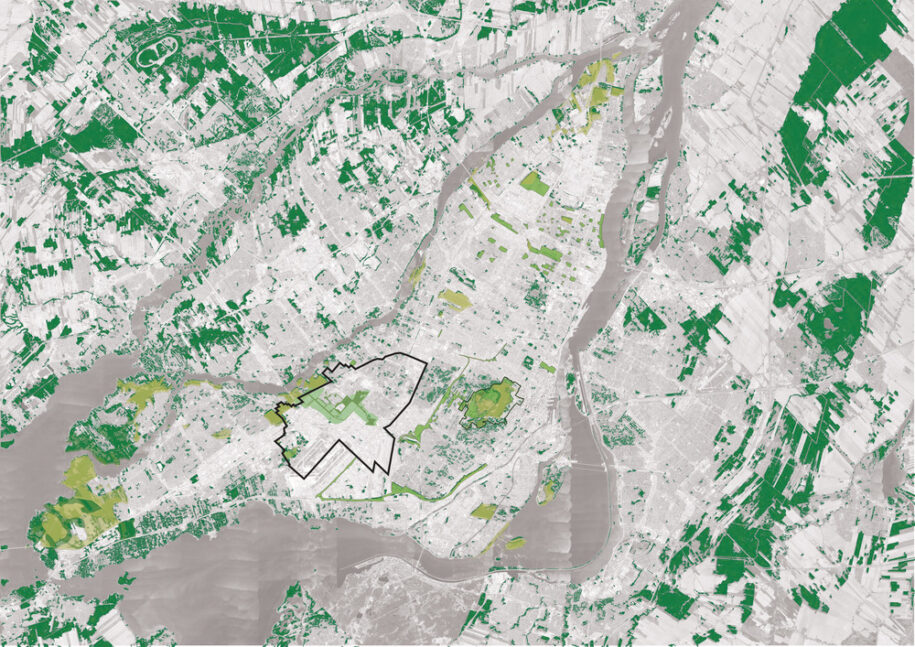
“The future corridor will enable us to transition from a landscape that has been greatly modified by human beings, losing its biodiversity and resilience, to an abundant and diversified urban nature, connected and linked to human beings,” says Alan DeSousa, Mayor of the Borough of St-Laurent, particularly affected by Montréal’s fast-paced, car-oriented growth of the ‘60s and ‘70s.
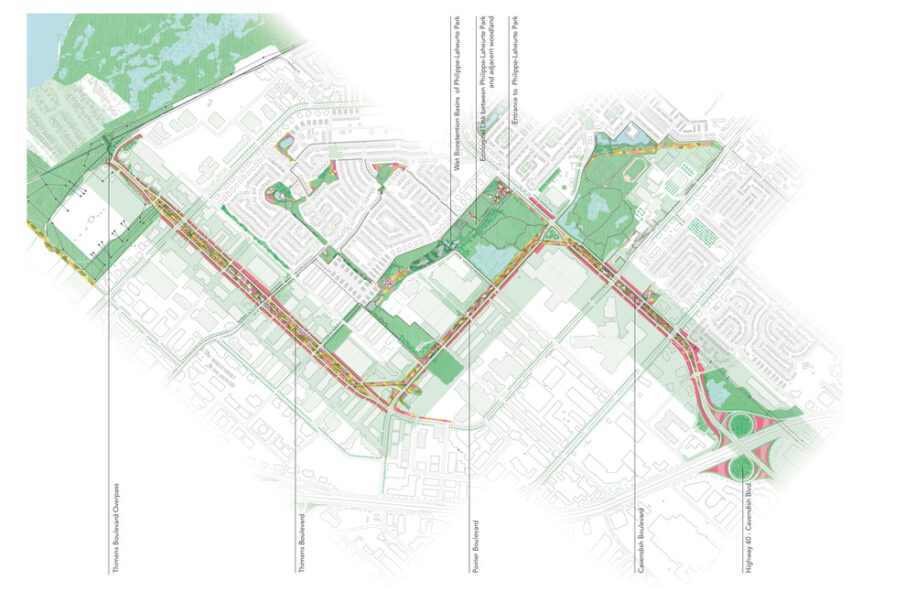
The disappearance of the borough’s tree cover and ground vegetation, including former agricultural lands, has left the area more and more vulnerable to climate change. In 2015, local authorities started looking into the idea of bringing nature back to its 42.8-square-kilometer territory, 70% of which is now a sea of asphalt occupied by industrial and commercial activities. Not to mention the fact that the borough is used as a major corridor for high-voltage power lines.
Detailed inventories of existing fauna and flora were produced, various studies were undertaken, and consultation sessions were held, leading to the idea of a Biodiversity Corridor.
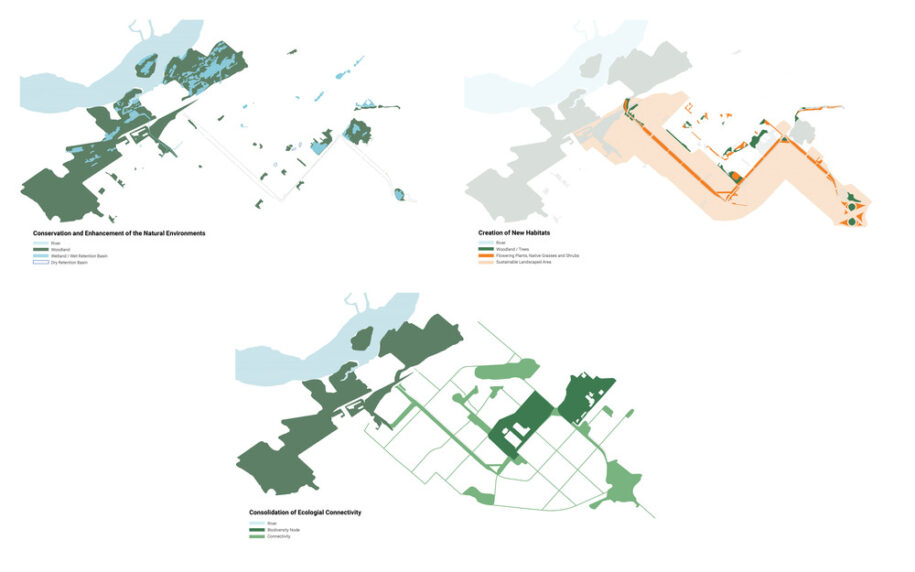
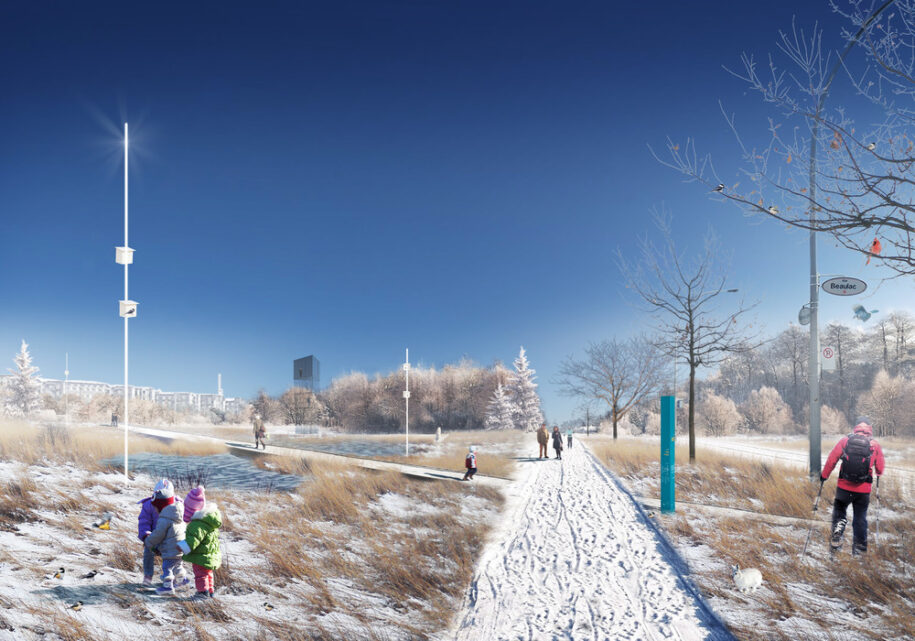
A multidisciplinary competition
In 2018, the City of Montréal launched a national, multidisciplinary landscape architecture competition, in the hope of generating an innovative scheme to be implemented over the next 20 years. A team of four firms—civiliti, LAND Italia, Table Architecture, and Biodiversité Conseil—won the competition.
The winning project’s “backbone” is a narrow strip of wasteland located under the overhead power lines along three main boulevards. According to the plan, the currently sterile lawns will be transformed into flowering meadows that will attract birds, pollinating insects, and small animals. Ground contours and a modulated topography will enliven this enriched landscape, breaking away from a feeling of homogeneity. The plan also includes new pedestrian trails and upgraded bicycle paths, as well as activity or rest areas for the enjoyment of St-Laurent workers and residents.
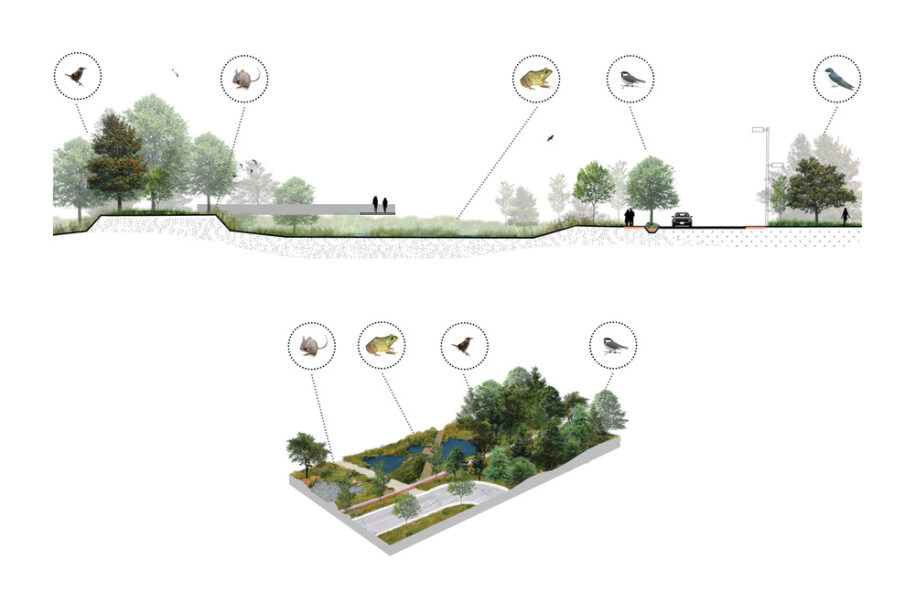
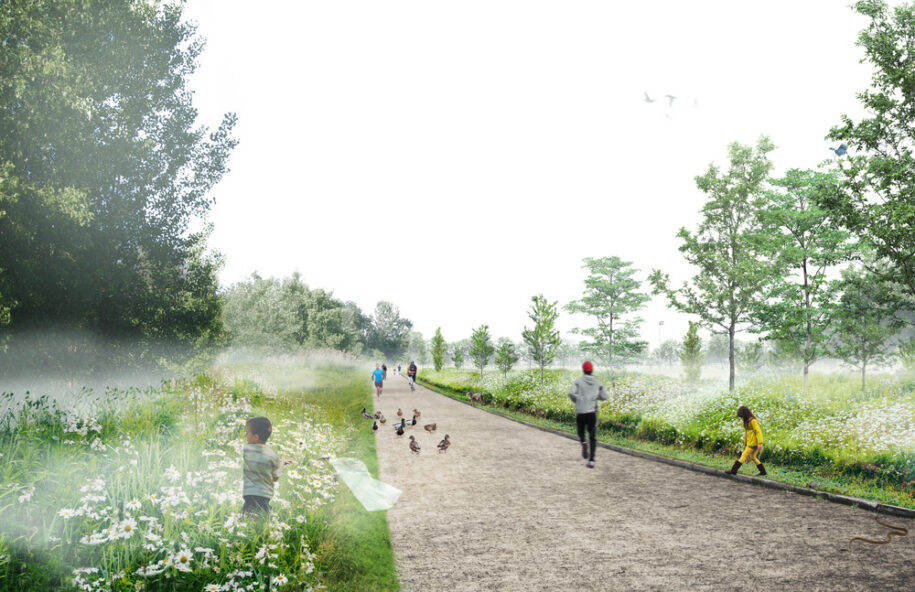
Additional interventions will help reconnect existing and future green spaces, eventually creating a continuous corridor allowing animals, insects, and vegetation to regain their lost habitat.
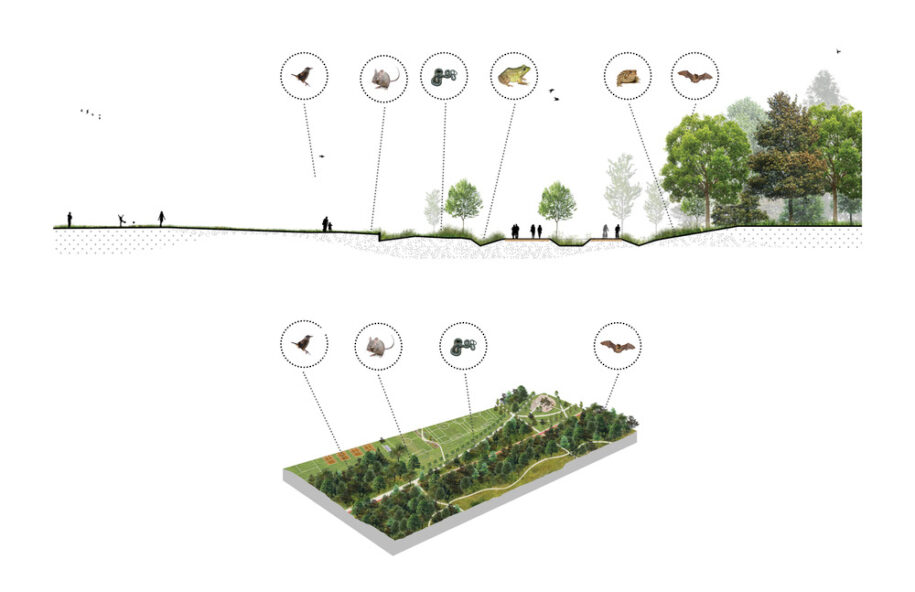
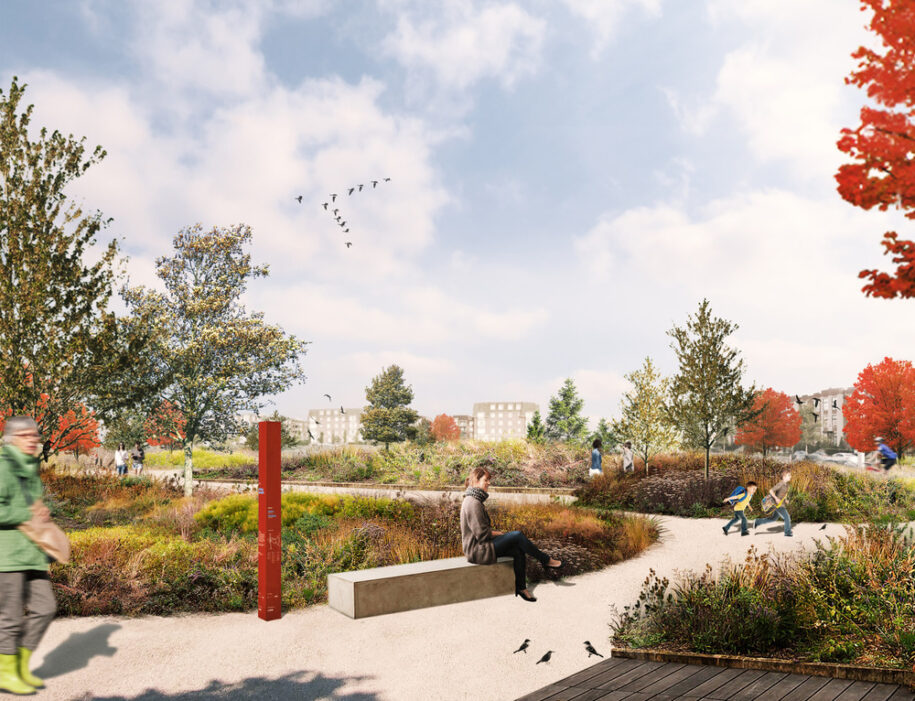
A spokesperson for civiliti, Fannie Duguay-Lefebvre summarized the proposal: “The corridor will enable the transition from a mostly asphalted, fragmented territory to a diversified urban landscape, connected to all living beings”. For St-Laurent residents and workers, this Biodiversity Corridor will provide a special space to discover nature in the heart of a bustling urban environment. More importantly, it will also serve as a laboratory for Montréal, Canada, as well as other cities and countries. The plan, prepared in collaboration with professionals from the borough’s Environment Division, is about reconciling the logic of the city and the logic of life.
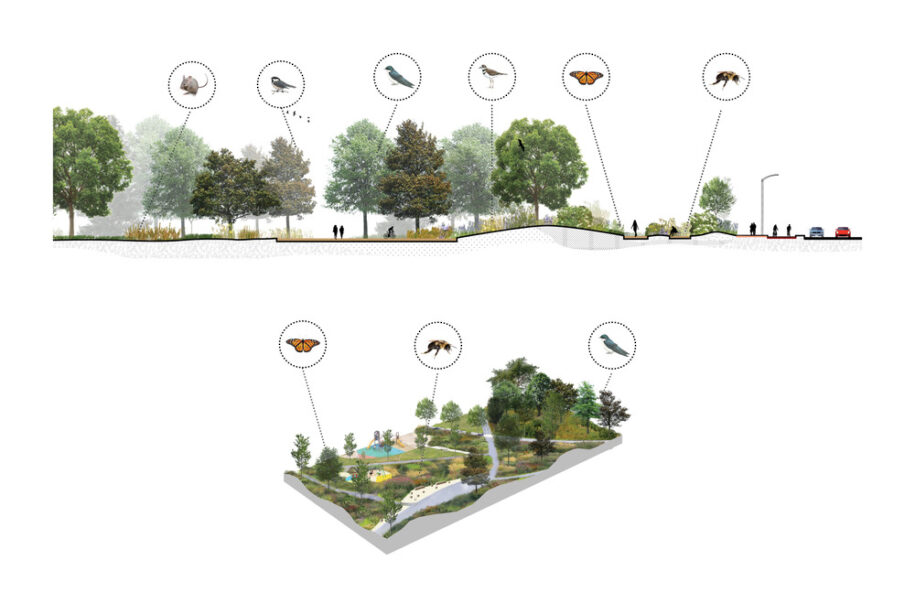
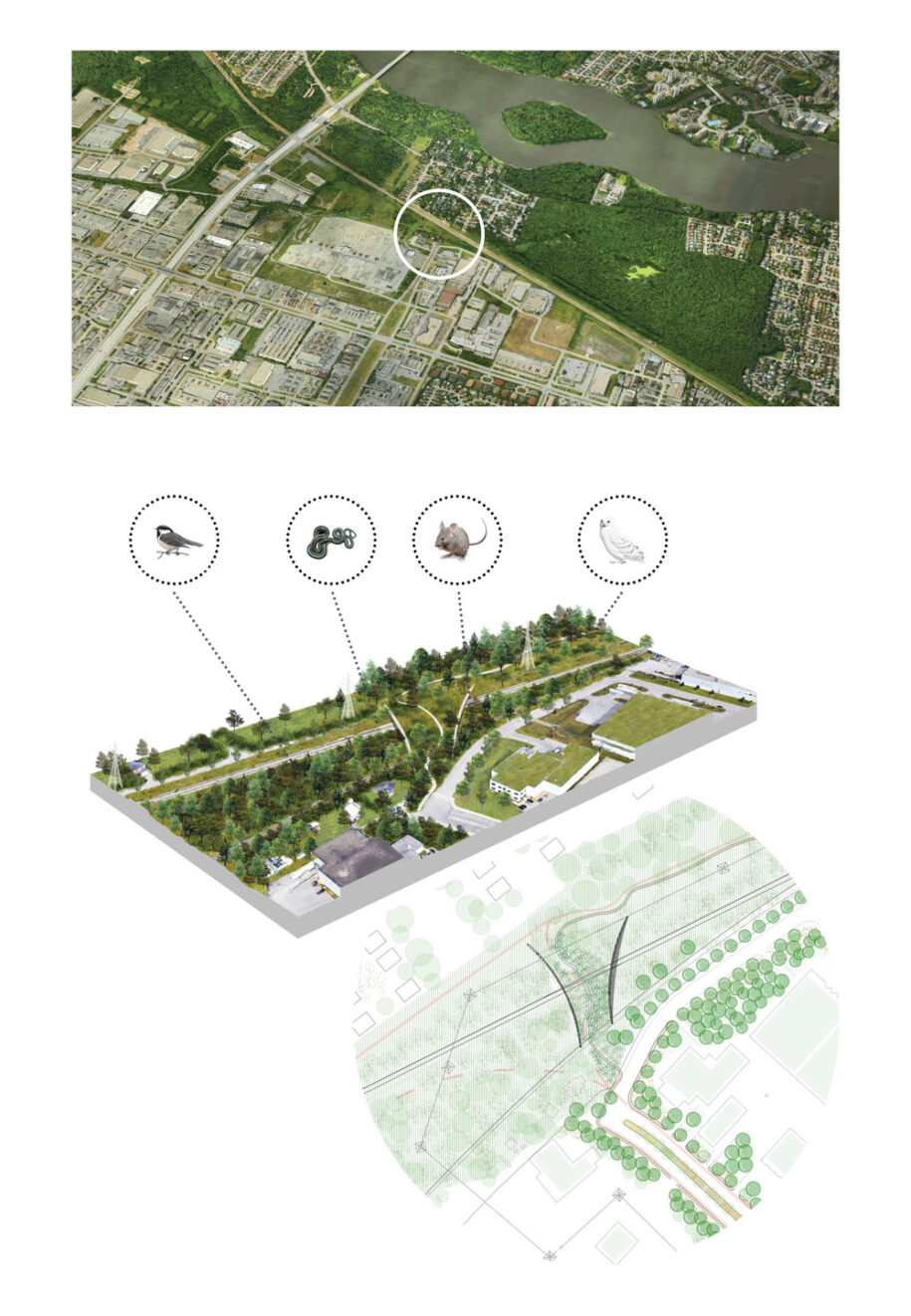
National Urban Design Award
The Biodiversity Corridor Master Plan received a Special Jury Award for the category “Sustainable Development” in the 2020 edition of the National Urban Design Awards. Organized jointly by the Royal Architectural Institute of Canada (RAIC), the Canadian Institute of Planners (CIP), and the Canadian Society of Landscape Architects (CSLA), the award is one of the top distinctions in Canada. As commented by the jury, “The promise of urban design is sustainable development—creating economic, environmental, social, and cultural benefits. While this project focuses on the environment, it reflects all Seven C’s’ of urban design: context, character, choice, connections, creativity, custodianship, and collaboration.”
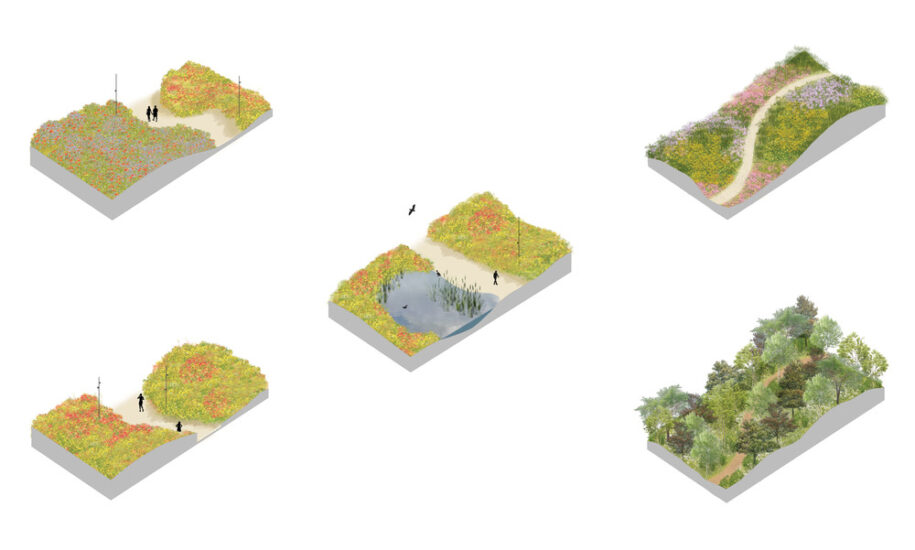
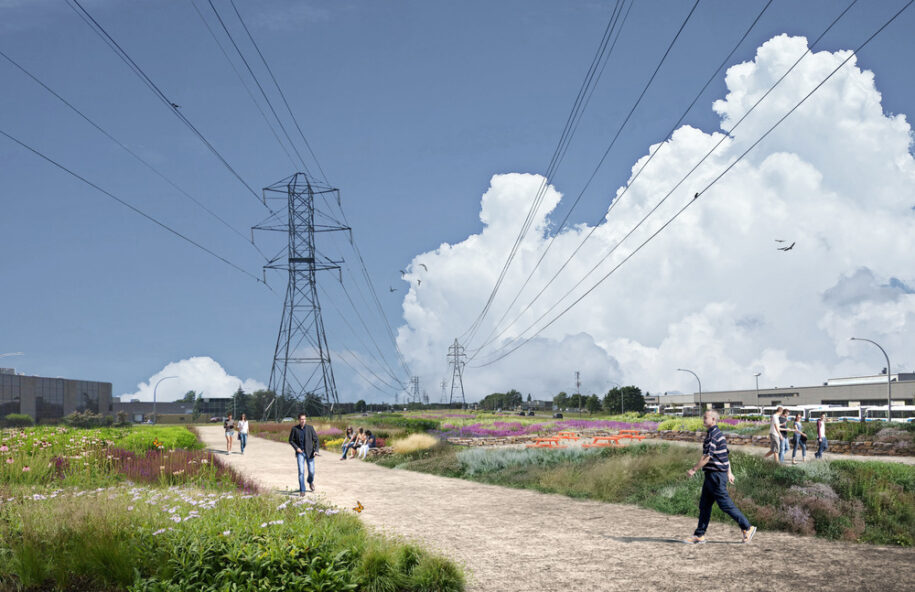
About civiliti
Founded by Peter Soland and Fannie Duguay-Lefebvre, civiliti is a Montreal-based urban design and landscape architecture firm known for its contemporary urban interventions. One of the firm’s most recent projects was Escales découvertes (Discovery Halts), on the iconic Mount Royal Heritage Site for which civiliti (with Julie Margot design) received major awards, namely an award from the Canadian Society of Landscape Architects (CSLA), a National Urban Design Award as well as an international award from the Society for Experiential Graphic Design (SEGD).
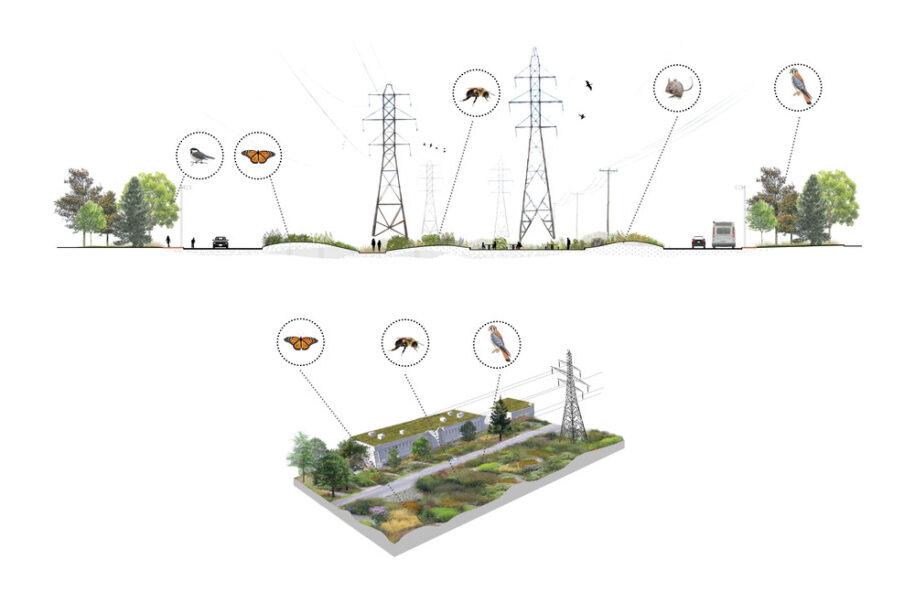
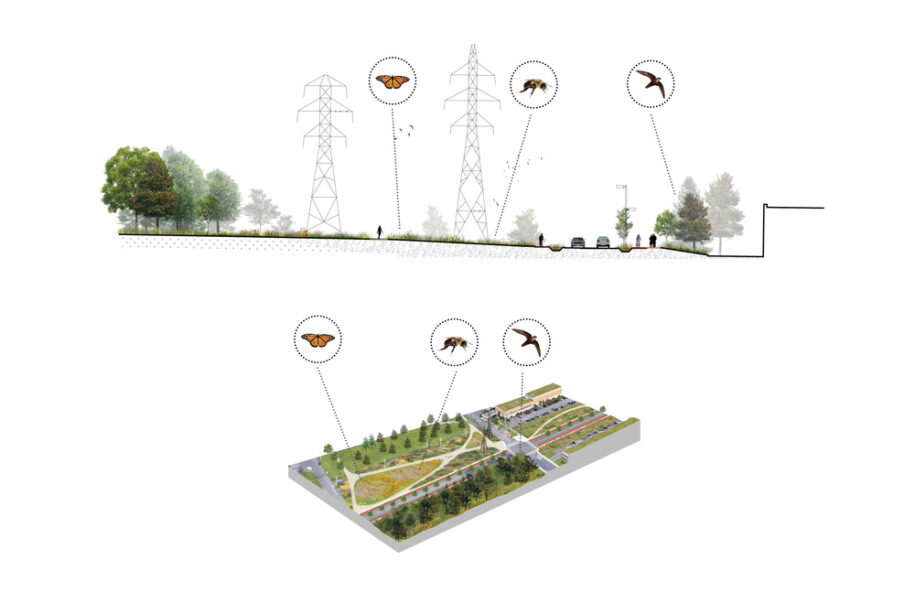
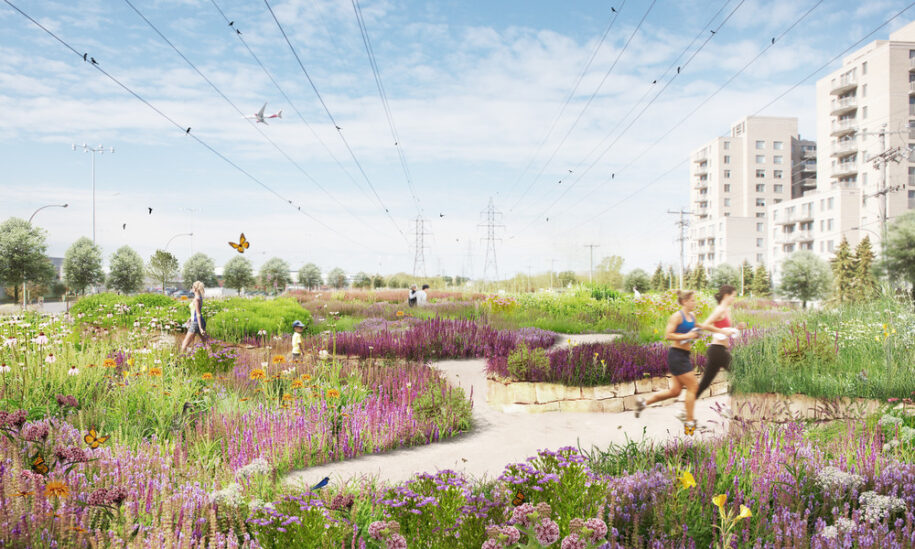
About LAND Italia
LAND is an international landscape architecture studio with offices in Italy, Switzerland, and Germany. Under the creative direction of the co-founder Andreas Kipar, landscape architects, architects, and urban planners have been developing projects since 1990 – from master planning to open space design.
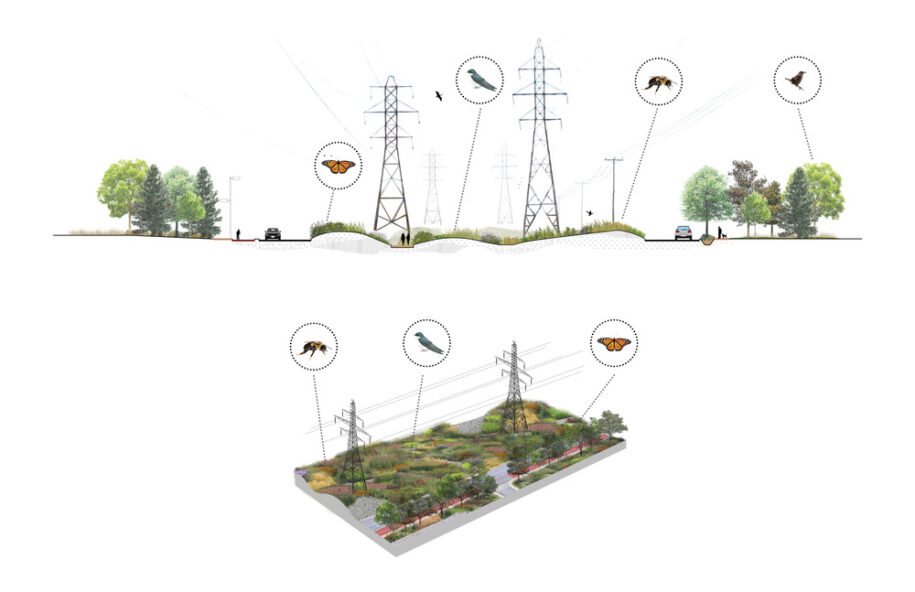
About Table Architecture
Table Architecture’s practice is set between the individual and his or her fellow citizens. Our vision is animated by this interface built for social interactions, and one that frames our professional understanding of space at various scales. Our approach is based on spatial and conceptual experimentation inspired by our collective imagination. We believe that a true sense of place can celebrate the present while simultaneously connecting with the past and the future.
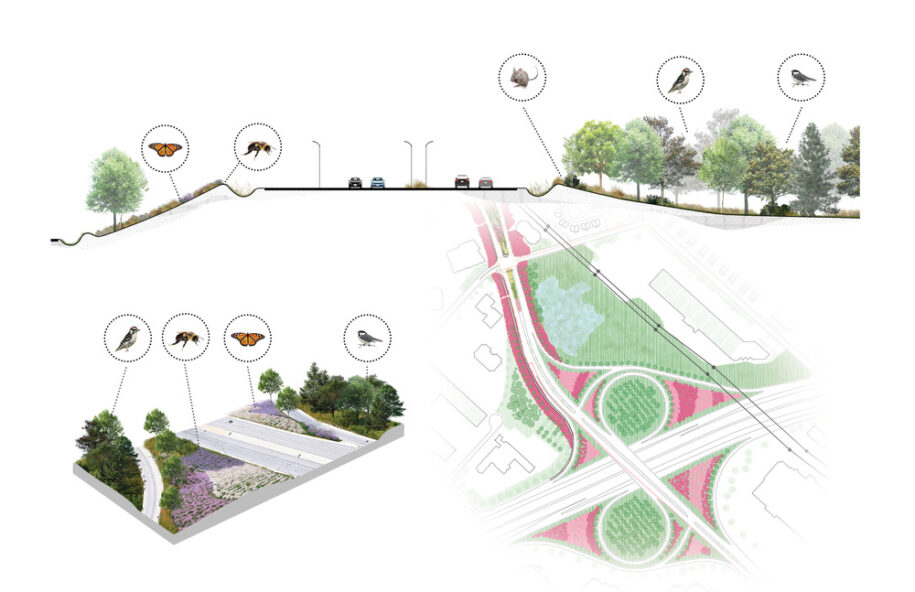
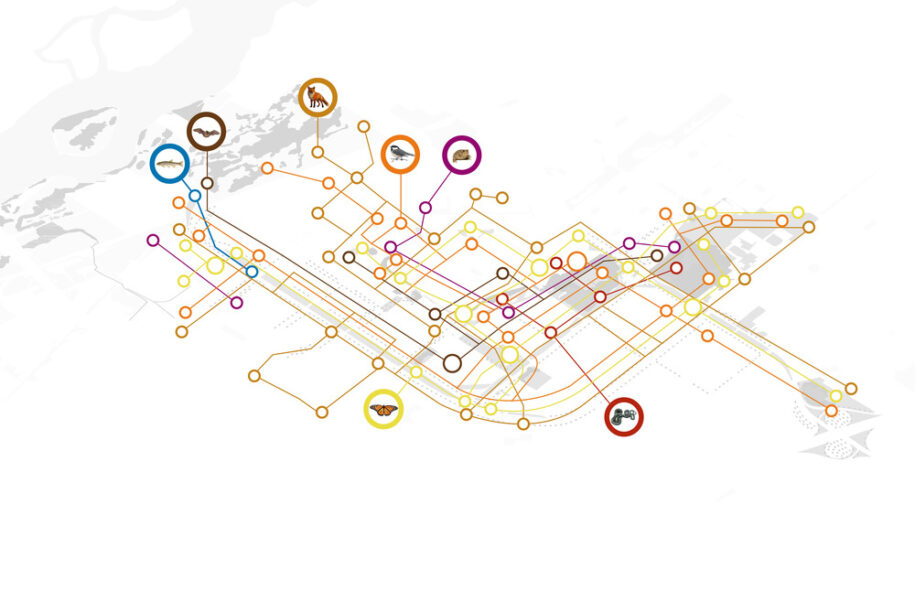
About Biodiversité Conseil
Biodiversité Conseil is a Montréal-based firm specialized in biological and ecological research as well as habitat and natural environment preservation. Over the last decades, the firm’s founder, biologist Kim Marineau, has undertaken more than 200 studies related to ecosystems, flora, and fauna in national parks, national historical sites, and municipal parks. The firm also worked for a number of private institutions.
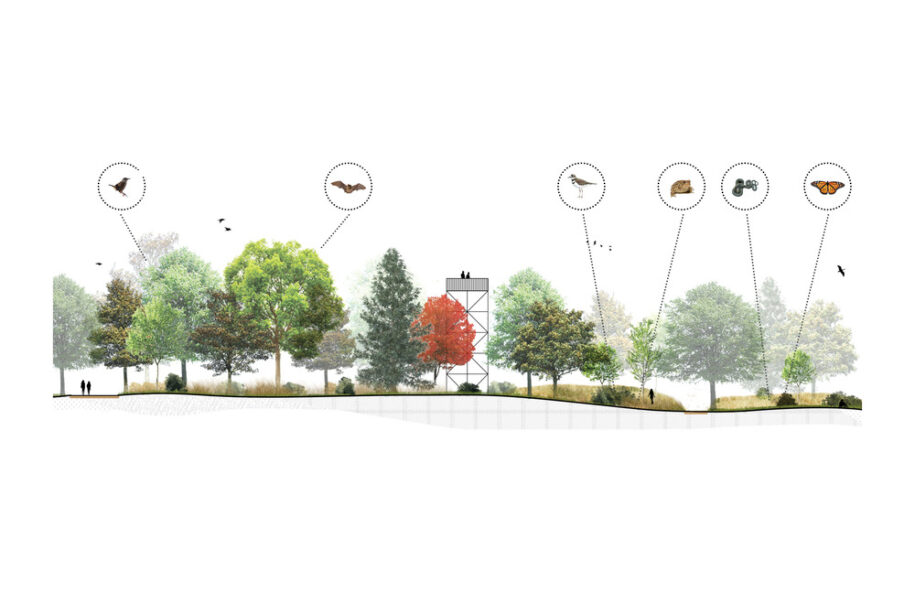
Facts & Credits
Project title Biodiversity Corridor
Typology Landscape architecture, Urban design
Location Montréal, Canada
Clients Arrondissement de Saint-Laurent – Ville de Montréal, Division de l’environnement et de la protection du territoire
Research and Design Team civiliti, LAND Italia, Table Architecture, Biodiversité Conseil
Awards Special Jury Award, Category: Sustainable Development, National Urban Design Awards 2020
READ ALSO: P. Mantzou, E. Giannopoulou, D. Giouzepas & A. Floros receive Honourable Mention in the Open Architectural Competition "LYCABETTUS PAN.ORAMA"